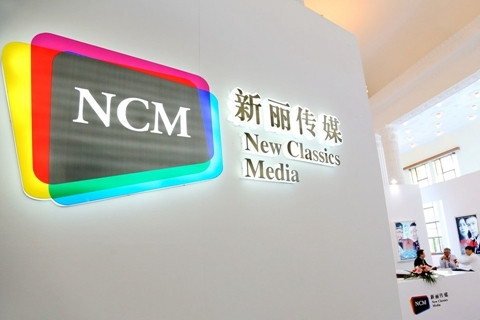China audiences have criticized New Classics Media's web-series remake of "The Deer and The Cauldron."
It is a classic novel by Jin Yong, considered to be the Tolkien of China.
Released Sunday on iQIYI, the reproduction rated a 2.6/10 score on Douban, China's equivalent to RottenTomato, in comparison with the 8.8 score of the 1998 original Hong Kong TBV version.
The 49-episode web series comprising 49-minute episodes has received viewer disapproval - from poor script adaptation and art design to immure performances.
New Classics Media, formerly seen as one of the most promising production companies in the country, is facing a difficult ordeal with negative financial performance in recent years.
Coming Up Short
For previously producing and distributing movies "Goodbye, Mr. Loser," "Legend of the Demon Cat" and TV series "The First Half of My Life" and "Tiger Mom," New Classics Media earned a strong word-of-mouth reputation in the industry from when it was established in 2007 until its peak in 2017.
The company tried five times to launch an initial public offering from 2012 through 2017 but was successively denied by top securities regulators owing to a questionable relation with its second-largest shareholder, Enlight Media.
Lacking cash flow, it sought a finance shelter by turning to Hong Kong-listed e-book platform China Literature - which is a publishing unit of Tencent Holdings - for $2.25 billion in October 2018. In exchange, Tencent bought a 27% stake in NCM from Enlight Media.
The acquisition, however, is at the cost of China Literature's outright control and a strict valuation adjustment mechanism agreement. China Literature requested NCM to reach net profits of no less than 500 million yuan ($76.10 million), 700 million yuan and 900 million yuan respectively from 2018 through 2020.
Owing to China's censorship restrictions in 2018 and 2019, many production firms had to cancel some projects and extend production timelines on others. NCM could deliver 324 million yuan and 549 million, respectively, in net profits during these two years, according to China Literature's financial report.
China Literature blamed its own 2 billion yuan to 3.4-billion-yuan loss in the first half year of 2020 upon NCM's "goodwill impairments."
IP Wellspring Runs Dry
Literary adaptations are often seen as a safe move when it comes to high-investment video content productions. Nearly a third of the top 50 movies, a quarter of the top TV series and more than half of the web series in China are literary adaptations.
China Literature had said acquiring NCM would allow Tencent "to adapt more high-quality literary content into popular television series, web series and films leveraging NCM's proven track record of script development and production across multiple literary genres," according to a regulatory filing to the Hong Kong stock market in 2018.
China Literature admitted, after seeing NCM couldn't meet its financial expectations, the integration with NCM failed to "make a synergistic effect" because the group lacked a team that was "both familiar with literature and filmmaking" to give impetus to the whole process, according to its recent fiscal report.
"Fall in Love at First Kiss," a movie that NMC adapted from the Japan popular manga "Mischievous Kiss: Love in TOKYO," also experienced the same IP collapse as it was rated with a 4.6 score on Douban.
"Troika"
In the wake of losses this year, Tencent Pictures chief executive Cheng Wu addressed the necessary pillars to bring structural integration to the three entities by collectively leading content development. He said at a news conference in October, describing NMC, China Literature and Tencent as now being a "troika."
Cheng and other veteran Tencent executives replaced China Literature's founding management team in April. The Tencent animation and comics team was combined with a previously separate comics team working under China Literature, according to Cheng's speech to local media.
"Qing Yu Nian" or "Joy of Life," a series adapted from a popular internet novel originally published on China Literature, was produced by NCM and first premiered on Tencent last year. It was streamed 8.5 billion times and won competitive domestic awards.
Tencent said that among the 56 projects the three firms are involved in, the trio are collaborating on four ongoing projects.





